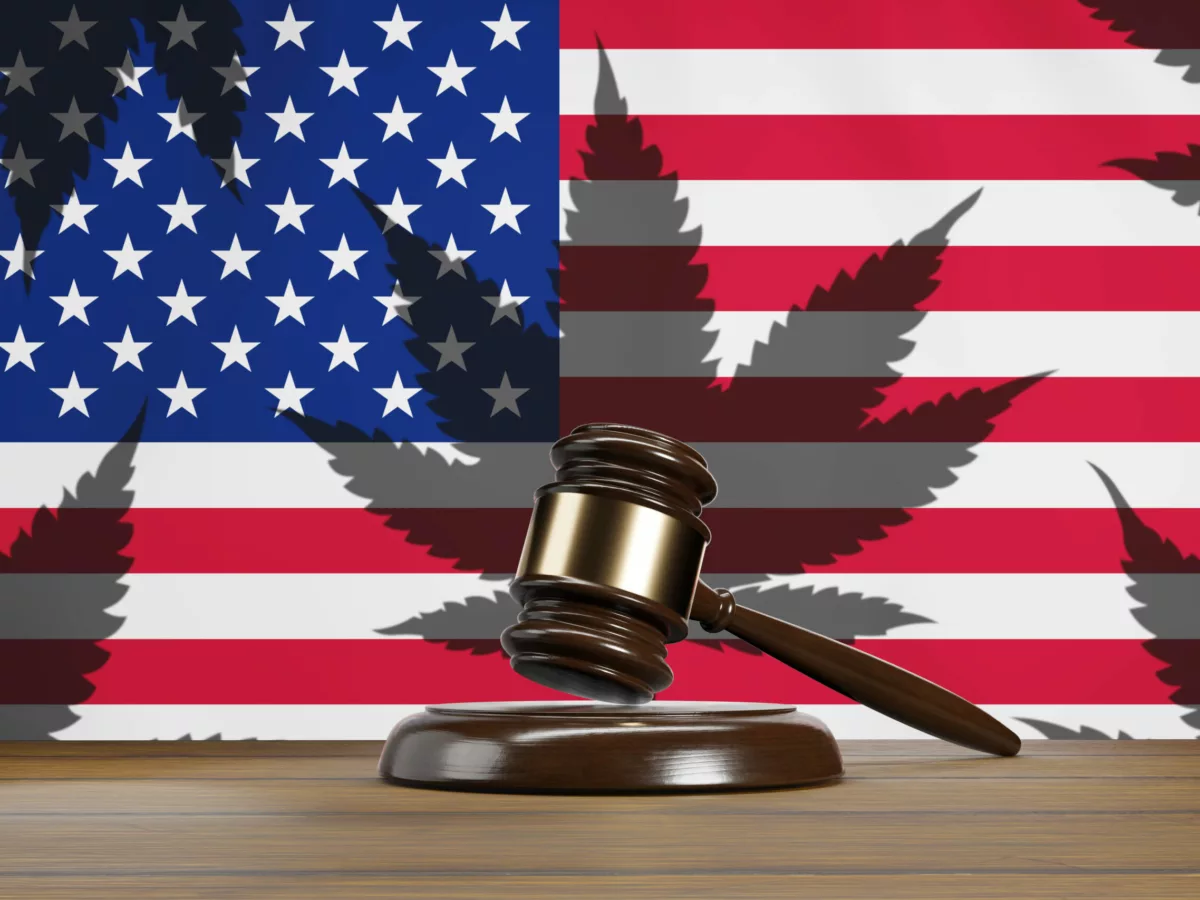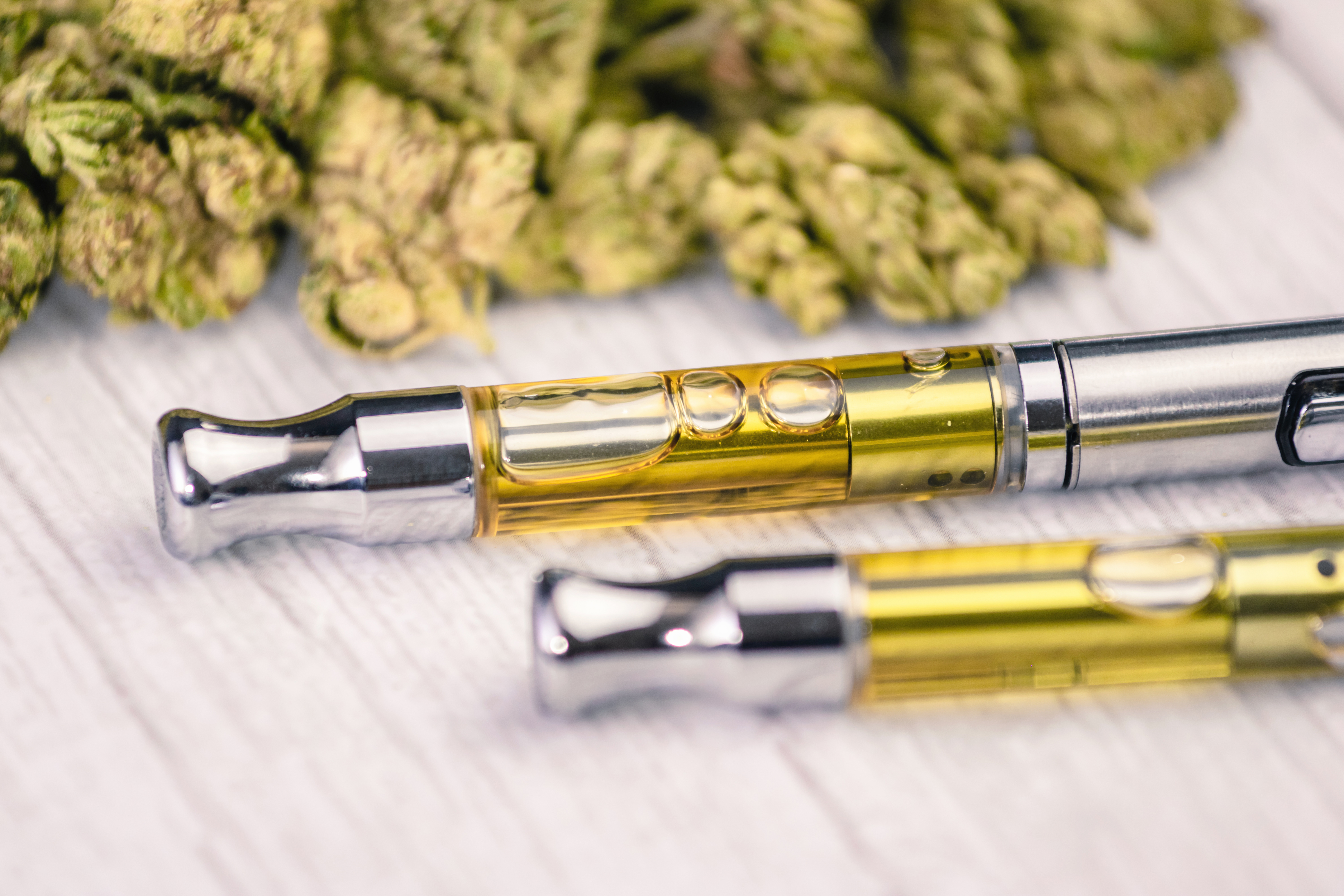When Jonathan Wall’s federal cannabis-trafficking trial begins next week in Baltimore, there will be no discussion of the fact that cannabis is now legal in 18 states and counting.
That’s the order from U.S. District Judge Stephanie Gallagher, who on Tuesday approved a pretrial motion by prosecutors calling for the court to bar any discussion of the ongoing cannabis legalization movement across the United States. The Justice Department filed the motion late last week, requesting that the U.S. District Court of Maryland preclude Wall’s defense team “from asking questions, presenting evidence, or making arguments regarding the way the law in other jurisdictions treats marijuana.”
“Marijuana is a Schedule I controlled substance and under federal law, it is [a] crime to conspire with others to distribute or possess with the intent to distribute marijuana,” prosecutors wrote in their motion. “The fact that other jurisdictions have legalized marijuana, decriminalized marijuana, are considering decriminalization of certain quantities of marijuana, or have declined to prosecute individuals for crimes involving marijuana, is not relevant to the issues at this trial.”
The motion adds that “evidence and argument of this sort is not relevant and should be excluded from this trial.”
Wall’s case has attracted national attention. It was recently publicized in a Washington Post ad that asked, “Who will be the last person incarcerated for marijuana in the United States?” The Maryland native was indicted by a grand jury in 2019 for allegedly moving more than 1,000 kilos of weed cross-country over two years, from California to his home state.
Federal authorities allege that Wall served as the architect of a cannabis trafficking that used commercial freight haulers to move “hundreds of pounds of marijuana at a time” during cross-country trips. He was working from Humboldt County, where he moved at the age of 20, when authorities began cracking down on the scheme in 2019.
Wall fled the country after his indictment in fall 2019, but turned himself over to federal authorities at LAX Airport the following summer. Now 27, he’s facing at least 10 years in prison and has been detained in Baltimore’s Chesapeake Detention Center, a maximum security prison, for almost two years.
Advocates, joining Wall’s family and his attorney, have called attention to the case as a cruel example of U.S. drug policy. They note the legal cannabis industry is raking in tens of billions of dollars annually, and that 18 states plus the District of Columbia (potentially joined by Maryland and others this year) have enacted laws allowing adults age 21 and up to consume cannabis recreationally.
The Biden administration has so far failed to deliver on campaign-trail promises of legalization or even decriminalization. Biden himself took a new step Tuesday in commuting the sentences of 75 people with nonviolent federal drug convictions on their records. However, on the same day, U.S. Attorney General and Biden appointee Merrick Garland declined to say whether the Justice Department will resume following a piece of Obama-era guidance to not interfere with state-level legalization policies, which former Attorney General Jeff Sessions rescinded during President Donald Trump’s term in office.
Biden has yet to announce any plans to legalize cannabis at the federal level, even as Congress considers measures from both sides of the aisle to tax and regulate the plant.
“Right now there is this profound inconsistency in this country,” Wall’s Denver-based attorney, Jason Flores-Williams, said in an interview with Business Insider last year, nodding to Maryland’s lucrative medical cannabis industry. “I go to court in Maryland, and then just 40 miles down the road you’ve got a 72,000-square-foot warehouse that’s rented out for the next 20 years because someone was smart enough to buy it and convert it into a pot grow and rent it out.”
That outcry has been a key part of Wall’s defense with his May 2 trial date approaching. He’s attempted twice to have the court dismiss his case on geographic procedural grounds as well as equal protection grounds “due to disparate and arbitrary enforcement” of federal drug laws, given the widely varying legal climate from state to state.
Reached by phone on Wednesday, Flores-Williams declined to comment specifically on Gallagher granting federal prosecutors’ motion, saying only, “we are facing challenges in this litigation, but the fight for justice always involves challenges.”
Wall’s trial is set to begin at 9:30 a.m. on Monday at the U.S. District Courthouse in downtown Baltimore. As of Wednesday, a petition on Change.org for Wall’s case to be dropped had gathered nearly 16,000 signatures, making it one of the top petitions on the platform.





